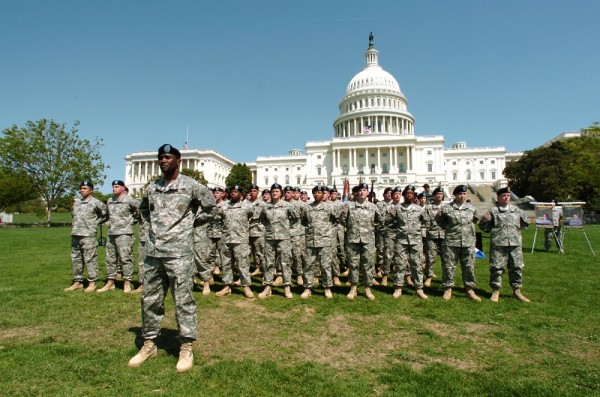

What if war were unconstitutional?
Yes, it sounds like something John Lennon would say, but it was actually an attempted amendment to the Constitution in 1927. Alternatively, what if the U.S. was unable to supply equipment, aid, or funds, to nations engaged in war? This was proposed in 1938 and had it passed, World War II might have turned out differently for our Allies that depended on America for aid and supplies.
If you feel like you just stumbled into an alternate reality sketch comedy about American politics you’re not far off. The above were all attempted amendments to the Constitution. These are a few of 11,000 failed amendments to the Constitution that are part of the National Archives’ Amending America exhibit, in honor of the 225th anniversary of the Bill of Rights.
There are 27 amendments to the Constitution. In order to add an amendment, it must pass two-thirds of both houses of Congress have to agree, then the proposed amendment must be approved by three fourths of the states before it is ratified.
Many of the proposals were indicative of the time, explained Christine Blackerby, a specialist with the Center for Legislative Archives who worked on the project for two-and-a-half years.
For example, in 1901, there was a proposal to deport or imprison anarchists for life, which came immediately after President William McKinley was assassinated by Leon Czolgosz, an anarchist.
“A lot of these are very reflective of that moment in time and that’s why they failed, they didn’t represent a longstanding concern that built up support over years or decades,” Blackerby told Task & Purpose.
Here some other amendments that didn’t take, at least two of which had to do with the government’s ability to seize property.
- Providing that the United States cannot be party to any aggressive war except upon declaration of war by Congress and ratification by majority of votes in majority of congressional districts in the United States (1915).
- Providing for the prohibition of war (1927).
- Conscripting private property for public use in time of war with or without compensation (1930).
- Providing that no money, property, or credit of the United States shall be donated, pledged, or loaned to a nation engaged in war (1938).
- Allowing the federal government to confiscate private property in a time of war (1939).
Unlike the above failed amendments, the 26th Amendment, which lowered the voting age from 21 to 18, was ratified in just 100 days in 1971, making it the fastest amendment ever passed, and the reason was that support for a lower voting age had been building for decades.
“The genesis for this amendment was actually during World War II when the draft age was lowered to 18 and at that point you now had a dichotomy between how old you had to be to fight and how old you had to be to vote on the war you’re fighting for,” said Blackerby.
While there were concerns at the time, it wasn’t until the Vietnam War that there was enough of a consensus that the voting age be changed, explained Blackerby. The amendment was the culmination of efforts stretching from World War II, through Korea, and well into Vietnam, so when it was finally ratified, it had the collective force of multiple generations behind it.
